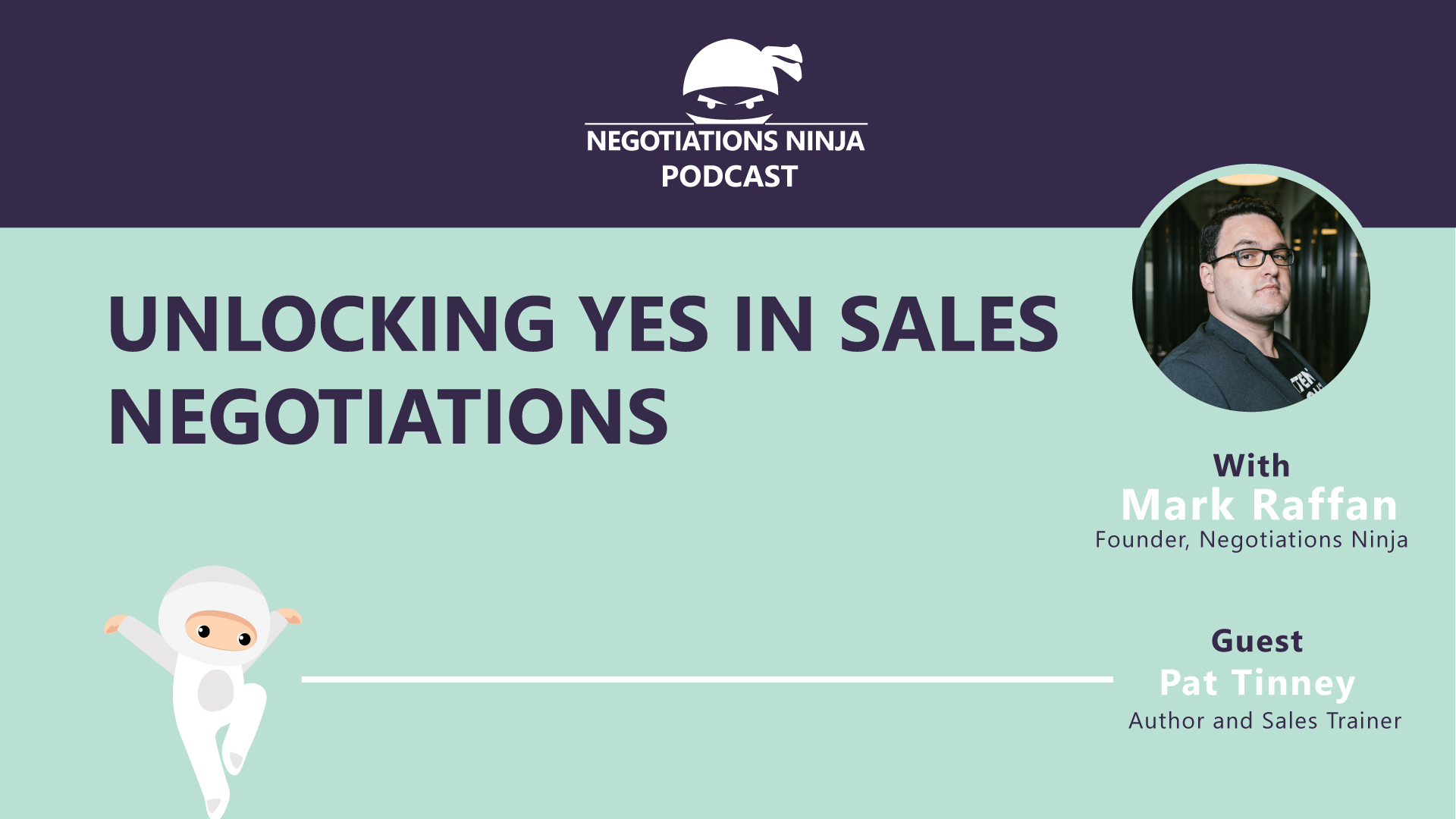In this episode of Negotiations Ninja, we talk about the new revised edition of Pat Tinney’s great book, “Unlocking Yes.” His book is a field guide for salespeople on how to negotiate. We dive into what it takes to negotiate good deals as a salesperson and the value of being able to tell a story. We even cover how to smartly withdraw from deals that just don’t feel right because, sometimes, “unlocking yes” means saying no to the wrong deals.
Outline of This Episode
- [5:02] The role of trust in negotiating deals
- [8:54] How to smartly withdraw from a deal
- [15:15] The power of storytelling in negotiation
- [20:24] The importance of adaptation and improvisation
- [23:15] Implementing post-mortems post-negotiation
- [27:26] Where to find Unlocking Yes
The role of trust in negotiating deals
If you’re going to buy something worth a couple of thousand dollars, the trust factor doesn’t need to be as high, right? However, when you get into large business deals, you have to be sure that the person on the other side of the table will see the deal to the end, will treat partners with respect, and show integrity. Doing these things builds trust. And without trust, you’re lost.
How to smartly withdraw from a deal
While you’re normally striving to unlock a yes in a negotiation, sometimes you need to smartly withdraw from the deal. How do you do that? And why is it important to know that you should withdraw from some deals?
Pat points out that everyone has the right to be profitable. If he feels someone is stepping on his throat during a negotiation, how is it going to be during implementation? The odds of the process moving smoothly are low at best.
If you step away from the negotiation table and feel like the deal is testing your ethics or the ethics of your company, it’s not worth risking your career over. Listen to your gut and make a call to move forward or walk away—but Pat would err on the side of caution.
The power of storytelling in negotiation
You’ll engage with many different people from different cultures throughout your career. To help someone else imagine the value you’re bringing to the table, you have to be able to tell stories. You have to be able to share when things went well or how you’re overcoming a challenge. There are so many things you can take about to draw your prospect closer. But you have to show your passion—and you’ll have to improvise
In one of his books, Michael Wheeler points out that improvisation in negotiation is critical to success. Many negotiators aren’t open communicators. They are quiet and analytical. You have to adapt to that terrain and tell stories differently with every person. You have to find the sweet spot, acclimate, and improvise.
Implementing post-mortems post-negotiation
Pat’s book also dives into the importance of post-mortems, i.e. dissecting what went right and what went wrong after a negotiation is complete. What could you have done better? How can the answers inform your next negotiation? Have a conversation with yourself to determine where you can improve to positively impact future negotiations.
You also need to implement a pre-mortem to determine where a deal might fall apart. So when you enter the negotiation, you can address those issues before they arise. For some, this might look like a SWOT analysis. For others, it’s writing through everything on a whiteboard. The last thing you should do is walk into a negotiation blind.
Resources & People Mentioned
- Episode #47: Improvisation in Negotiation
- Impro: Improvisation and the Theatre
- Thinking, Fast and Slow
- To Sell is Human
Connect with Pat Tinney
- Connect on LinkedIn
- Pat’s Website
- Unlocking Yes




